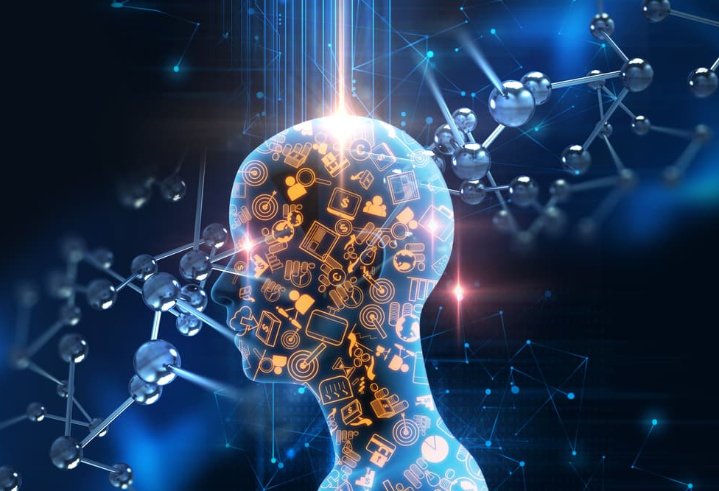Is AI Going to Replace Programmers? Here’s What You Need to Know

As automation, AI, and machine learning continue to reshape industries, concerns around job displacement are becoming more widespread. A recent study predicts that 40% of current Australian jobs (over 5 million roles), could be replaced by technological advancements in the next 10 to 15 years. The rise of AI has already impacted fields such as agriculture, mining, and manufacturing, and now it's creeping into the world of programming.
But how does this change the role of the modern programmer?
The short answer: it’s evolving, not ending. AI may revolutionise the way we write code, but human programmers are still an integral part of the process. In this article, we explore AI’s growing role in the programming world, the future of developers, and how programmers can harness the power of AI to enhance their work.
Can AI Write Code?
Yes, AI can already write code, and its capabilities are advancing rapidly. Over the past few years, tech giants have developed AI-powered tools that write code at speeds and efficiencies that often outpace human programmers.
A prime example is SketchAdapt, a program developed by Solar-Lexama and Josh Tenenbaum. It’s designed to create high-level programs and use algorithms to search for sub-programs, enabling more complex, efficient coding. This marks a significant step toward program synthesis, where AI independently generates code based on given inputs.
Other programs like BAYOU and DeepCoder are following suit. BAYOU predicts the next lines of code based on keywords, while DeepCoder, developed by Microsoft and Cambridge University, searches vast code databases to solve problems.
Is This the End of Programmers?
While the rise of AI in programming has caused some anxiety in the industry, the role of human developers is far from obsolete. AI is likely to complement, not replace, human programmers in the coming years. While AI excels at automating repetitive tasks and solving specific coding challenges, it still cannot replace human creativity, critical thinking, and the ability to interpret and meet customer needs.
In fact, AI-powered coding tools like BAYOU and DeepCoder are designed to assist programmers, helping them complete mundane tasks more quickly. But the unique ability of humans to understand vague requirements, prioritise features, and add context to code remains invaluable.
According to Artur Hebda, a software developer at Railsware, “Creating software is about converting vague requirements into strict specifications that computers can execute... and that’s not easy, even for humans.”
With Australia projected to see a 25,500 increase in programming jobs between 2018 and 2023, there's no shortage of opportunities for developers to thrive alongside AI.
The Benefits of AI-Powered Programming
Rather than replacing programmers, AI is expected to assist them by automating mundane tasks, leaving more time for creative and strategic work. Here’s how AI is transforming the industry:
Faster Coding: AI tools like BAYOU can automate the tedious task of finding the right code for a problem, improving speed and efficiency.
Error Prevention: AI can help detect bugs before they occur. Ubisoft's “Commit Assistant”, for example, uses a vast library of previous coding errors to predict potential issues before they become problems.
Code Security: AI is also making code more secure. By learning programming patterns, AI can detect vulnerabilities and suggest improvements.
These enhancements can make the process of coding less intensive and more creative. AI doesn’t replace developers but supports them by taking over routine tasks, freeing up time for more strategic thinking and high-level problem-solving.
How Programmers Can Embrace AI
The key to thriving in an AI-powered future is embracing the technology rather than resisting it. Here are some ways programmers can adapt:
Automate Repetitive Tasks: Leverage AI tools to handle routine tasks, such as debugging or searching for code snippets. This allows programmers to focus on more meaningful aspects of their work.
Collaborate with AI: AI can be a powerful collaborator. As Praful Krishna, CEO of Coseer, explains, using AI tools can feel like having a team working alongside you. However, it’s essential to trust the technology after evaluating its performance, which may take some time.
Develop Skills for the Future: Emotional intelligence, creativity, and strategic thinking are essential human skills that AI cannot replicate. Programmers who develop these areas, along with higher-level tech skills, will remain in demand.
As AI continues to drive technological change, it’s essential to upskill and stay ahead of industry trends to future-proof your career.
Enhancing Skills for the Future
To stay relevant in a changing industry, continuous learning is key. Here’s how programmers can keep their skills aligned with future trends:
Upskilled offers a wide range of IT courses, from foundational coding skills to specialised areas like game design and website development.
Upskilled’s online courses are designed to fit into your schedule, allowing you to learn at your own pace and advance your career while balancing personal commitments.
By staying updated with the latest in AI, machine learning, and coding practices, programmers can remain competitive in an ever-evolving job market.
The Future of Programming in the Age of AI
While the rise of AI presents challenges, it also opens up new opportunities for programmers. Rather than replacing jobs, AI is set to enhance them, making programming more efficient and allowing developers to focus on creative, high-level tasks.
By embracing AI, upgrading skills, and leveraging automation, programmers can future-proof their careers and remain indispensable in a rapidly changing world.


)
)

